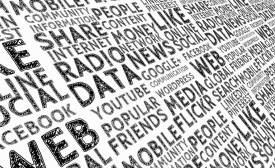united states
Fourteen years ago, it was founded as a local coffee and bakery chain store in a Taiwanese night market. Today, a U.S. city mayor signed an official document creating a day in its honor. [...] Some local Taiwanese businesses saw this recognition as proof of how proactive the U.S. government had become in attracting investment." Others saw it as a more profound sign that a sector of Taiwan's soft power in the U.S. was on the rise.
The State Department is now quietly allowing dozens of young women and minority students to become full-fledged diplomats after threatening to rescind job offers that most of the students were given two years ago upon winning prestigious scholarships. The concession, issued without announcement on Thursday, came after an intense lobbying campaign by members of Congress and retired diplomats. They persuaded Secretary of State Rex W. Tillerson to reverse his earlier decision to delay the students’ hiring into the Foreign Service indefinitely.
Anyone who has ever patched up a relationship with a bouquet knows the power of flowers. Without having to say "sorry," hurt feeling seem to float away like petals in a breeze. [...] In her handsome, 144-page hardcover book, Dowling explains how diplomatic messages can be conveyed through botanical metaphors.

"How can U.S. public diplomacy...maintain any credibility given what appears to be an openly Islamophobic administration?" asks Mieczysław P. Boduszyński.
The State Department and USAID are often conflated as parts of America’s “soft power” apparatus. And it’s true that in the broadest sense they seek to, as a joint mission statement puts it, “shape and sustain a peaceful, prosperous, just, and democratic world, and foster conditions for stability and progress for the benefit of the American people and people everywhere.” But beyond that they are dissimilar in every important way: The tasks they perform, what they value, their operating principles and how they carry out their work are profoundly different.
Rex Tillerson is clamping down further on hiring as part of his push to overhaul the U.S. State Department, in a move likely to exacerbate concerns that a large number of unfilled jobs is diminishing his agency’s role in shaping foreign policy. In a memo sent June 26 and obtained by Bloomberg News, bureaus are ordered to temporarily stop all transfers and reassignments and are barred from appointing new envoys. Any other request to “increase, expand or proliferate organization structures in the Department” must also be stopped.
Whether you are an executive working for an American multinational company, university, or NGO, or a diplomat serving in our embassies and missions abroad, in the age of President Trump we need to all radically rethink and reconsider our social engagement strategies.

Cari Guittard's advice for how both state and non-state actors can connect with the public under the current president.







